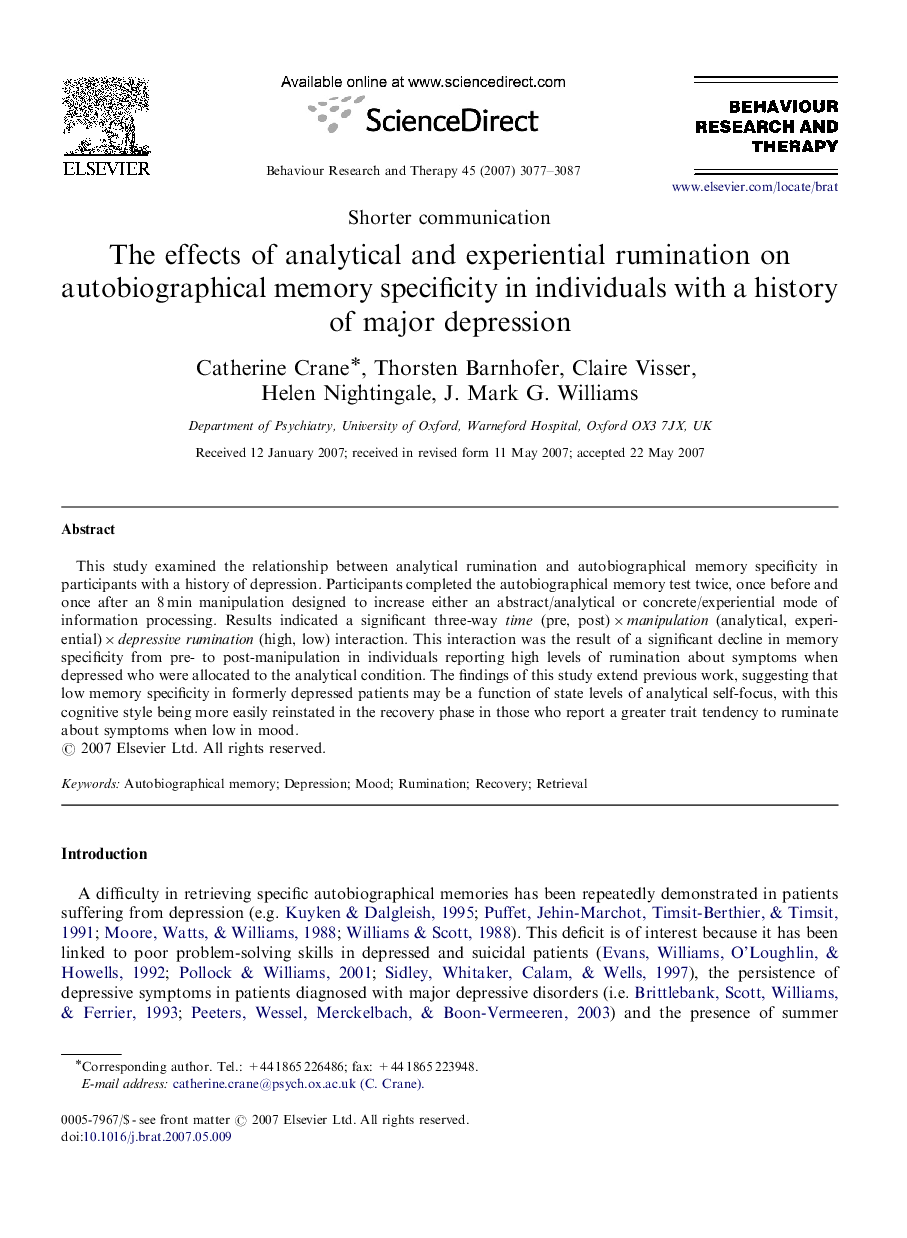| Article ID | Journal | Published Year | Pages | File Type |
|---|---|---|---|---|
| 10444851 | Behaviour Research and Therapy | 2007 | 11 Pages |
Abstract
This study examined the relationship between analytical rumination and autobiographical memory specificity in participants with a history of depression. Participants completed the autobiographical memory test twice, once before and once after an 8Â min manipulation designed to increase either an abstract/analytical or concrete/experiential mode of information processing. Results indicated a significant three-way time (pre, post)Ãmanipulation (analytical, experiential)Ãdepressive rumination (high, low) interaction. This interaction was the result of a significant decline in memory specificity from pre- to post-manipulation in individuals reporting high levels of rumination about symptoms when depressed who were allocated to the analytical condition. The findings of this study extend previous work, suggesting that low memory specificity in formerly depressed patients may be a function of state levels of analytical self-focus, with this cognitive style being more easily reinstated in the recovery phase in those who report a greater trait tendency to ruminate about symptoms when low in mood.
Related Topics
Health Sciences
Medicine and Dentistry
Psychiatry and Mental Health
Authors
Catherine Crane, Thorsten Barnhofer, Claire Visser, Helen Nightingale, J. Mark G. Williams,
